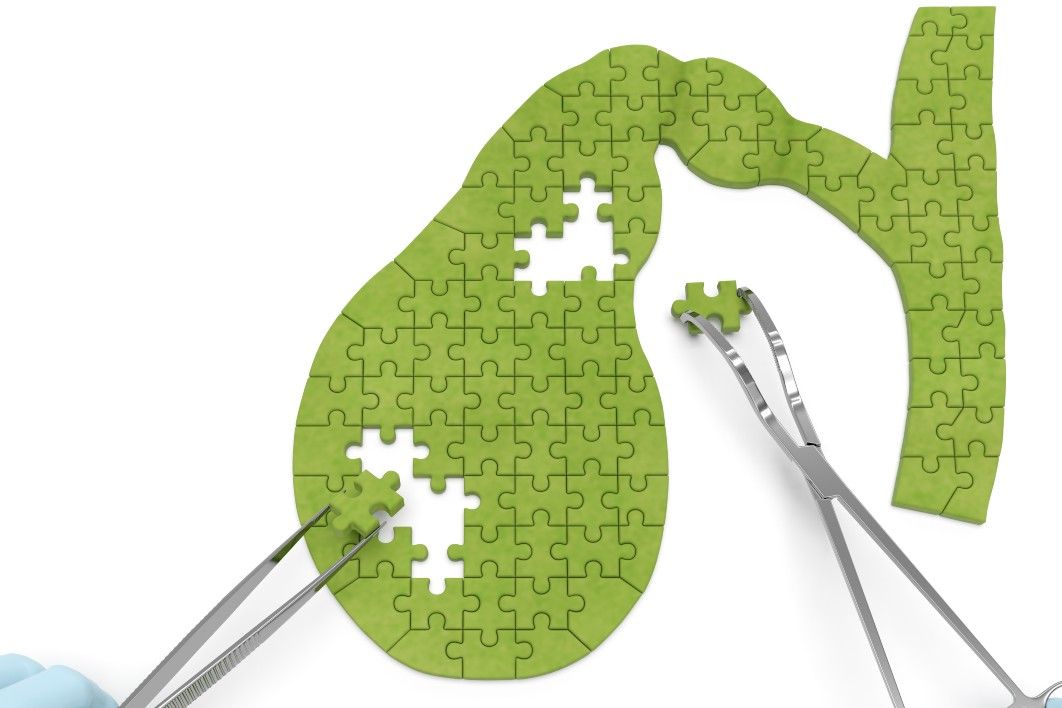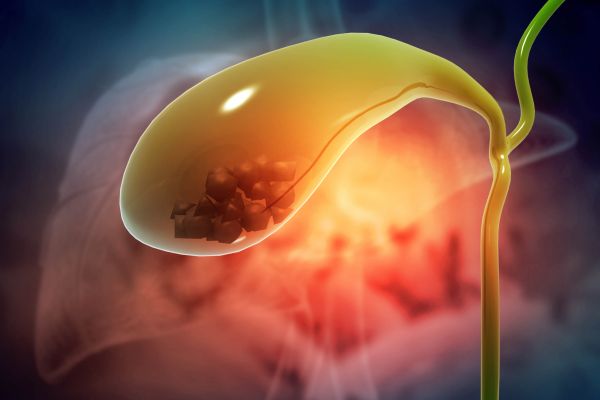Although progress is being made in detecting and understanding many types of cancer and what might cause them, gallbladder cancer remains something of a mystery.
“There are no clear causative factors for gallbladder cancers,” says Kannan Thanikanchalam, MD, medical oncologist at Roswell Park Comprehensive Cancer Center. “Gallbladder cancers are generally thought to be associated with conditions that cause longstanding inflammation in the gallbladder, including gallstones, gallbladder polyps, primary sclerosing cholangitis, or infections such as salmonella, Helicobacter pylori, and conditions like obesity.”
Less than 5,000 patients are diagnosed each year in the United States. Although there is a decrease in incidence of gallbladder cancer overall, it may be slowly increasing among younger people for unknown reasons. Most patients with gallbladder cancers are diagnosed incidentally when they undergo surgery for gallstones.
A mysterious cancer
Unlike prostate, lung, colon, breast or other cancers, there is currently no screening test for gallbladder cancer, and with a small number of cases diagnosed every year, it’s challenging to learn more about what causes it.
“We know what drives the changes. It probably starts in a single cell in the lining of the gallbladder wall that then gets some kind of signal and gradually, over a longer period of time than we think, turns into an actively growing process, which is why it’s often linked with chronic inflammation and chronic irritation of that organ,” he says.
The gallbladder is a storage organ, keeping a supply of bile for food digestion; it is not as vital as other organs, and therefore it’s harder to know when there’s a problem. It might not be apparent that something’s wrong until a secondary condition, such as jaundice or yellowing skin, appears.
Some gallbladder cancers aren’t diagnosed until the disease has progressed to a more advanced stage, possibly even spreading to other organs or tissue inside the abdomen. “If someone is losing weight and feels bloated but doesn’t know what is going on, we might learn that there’s a problem that originated in the gallbladder and that it may have spread,” says Dr. Thanikachalam.
“The goal is to identify the disease at a stage in which it’s treatable — or prevent it. With colon cancer, a colonoscopy removes the polyp, and the likelihood of getting colon cancer is significantly reduced. Unfortunately, we can’t do that for gallbladder cancer.”
Why Roswell Park for gallbladder cancer?
Find out what makes Roswell Park unique in treating gallbladder cancer.
Improving treatment options, latest advances
When someone is diagnosed with gallbladder cancer, several treatment options are available; however, surgery remains the only treatment with the potential for a cure.
“Systemic therapy has significantly improved within the last three years. Now, the use of chemotherapy and immunotherapy has meaningfully improved outcomes for patients with biliary tract cancers including gallbladder cancers,” explains Dr. Thanikachalam.
“In the last four to five years, there have been several exciting developments in the field of precision medicine, a way to target specific mutations or proteins that are abnormally present or expressed in cancers.”
Some of these molecules can be found not only in the gallbladder but also in other areas of the bile duct system, including inside the liver. “These molecules drive the cancer and we have specific medications that can block the activity related to these molecules,” he explains. “Every patient with advanced gallbladder cancer should have their tumor DNA analyzed for the presence of these mutations or abnormal proteins, such as HER-2, tumor mutational burden, MSI status, NTRK status, FGFR2, IDH1/2.”
High-quality diagnostic imaging can make a big difference in a patient’s life. “Occasionally, lab tests are performed to pinpoint what’s wrong. If we suspect cancer, often that includes an ultrasound. If a mass is found on a CT scan, ultrasound or MRI, it can be helpful to assume that a patient has gallbladder cancer until it is proven otherwise.”
“If there’s a concern over cancer, I’d invite the person to spend a day with us, to give us a call and be seen here,” Dr. Thanikachalam says. “Roswell Park has a lot to offer; a complete team of experts from different medical specialties that have a lot of experience in diagnosing and treating gallbladder cancer."




